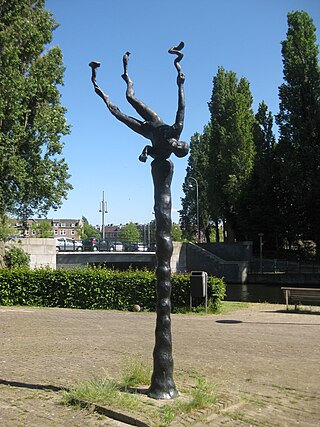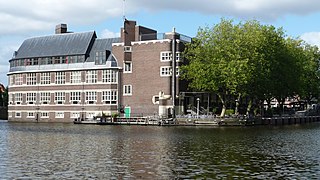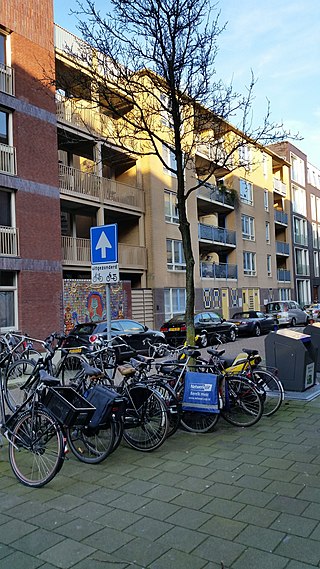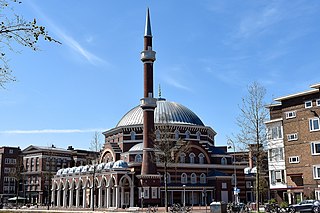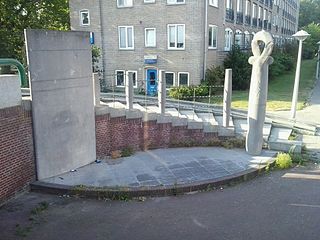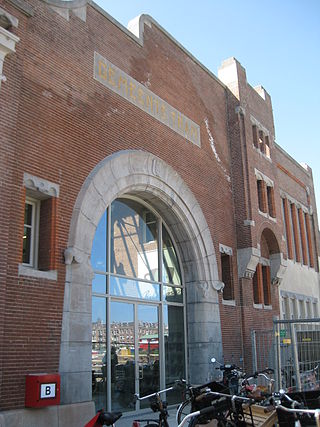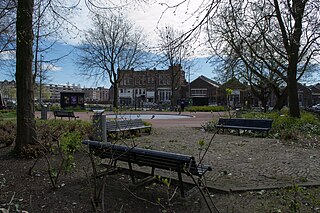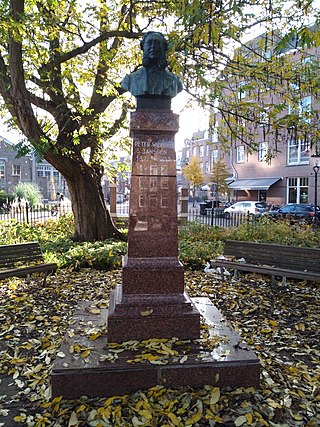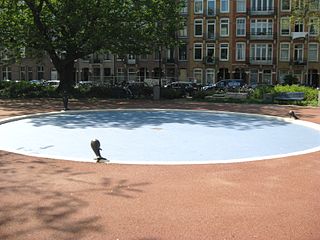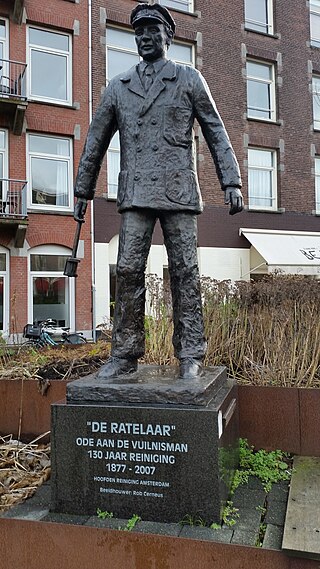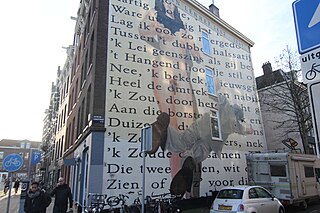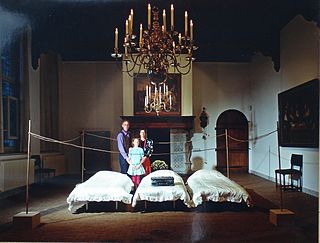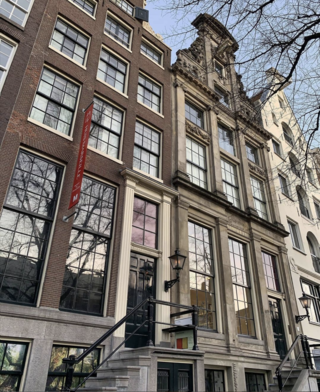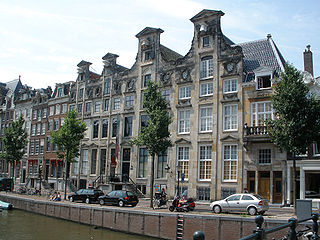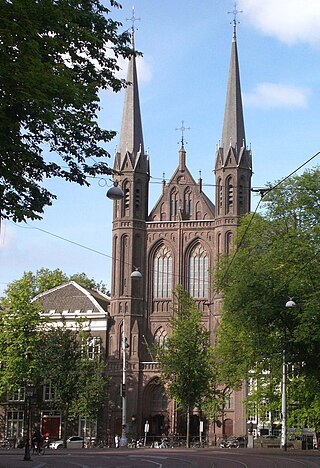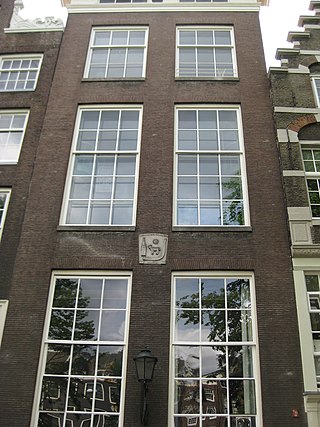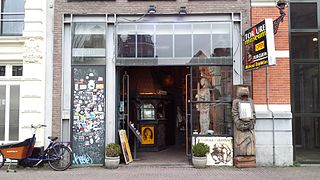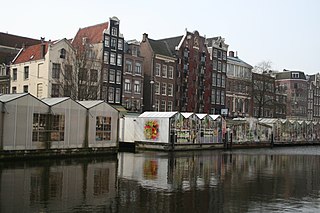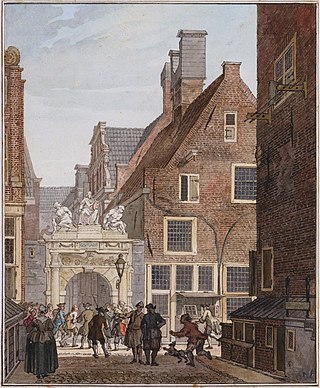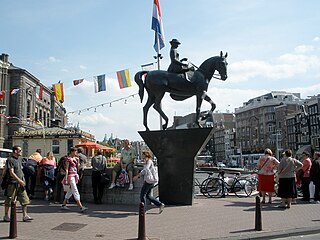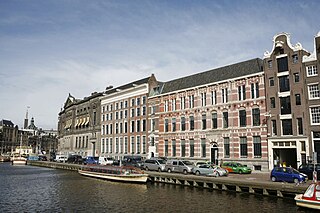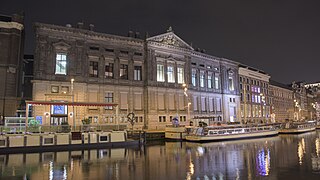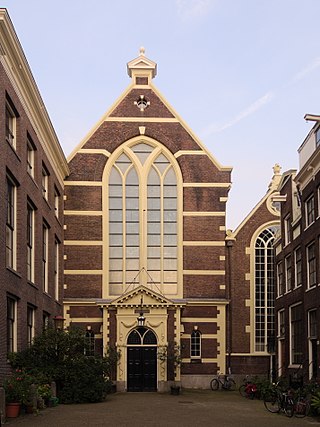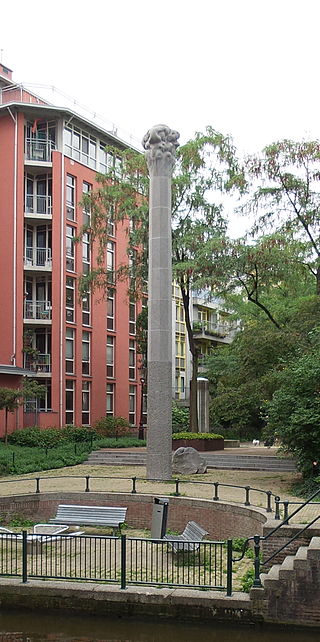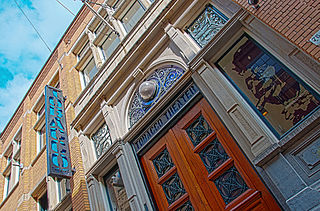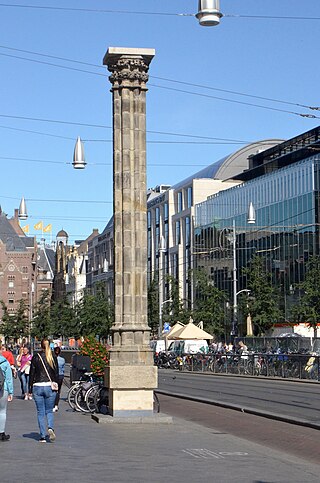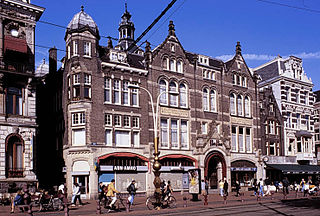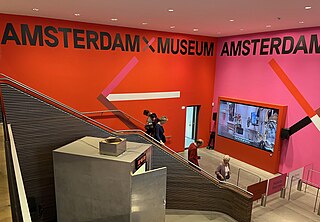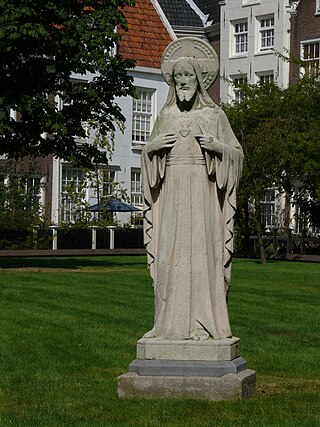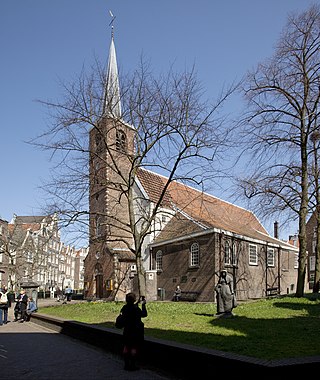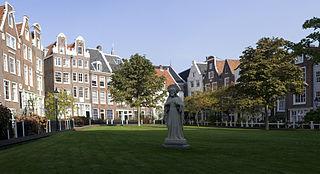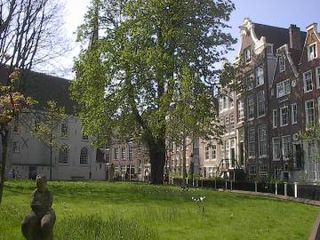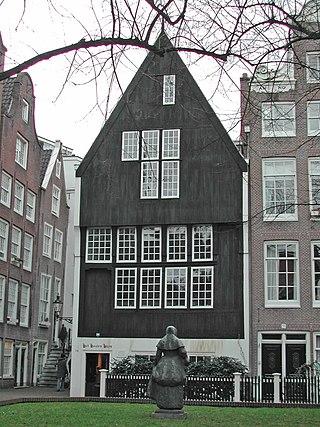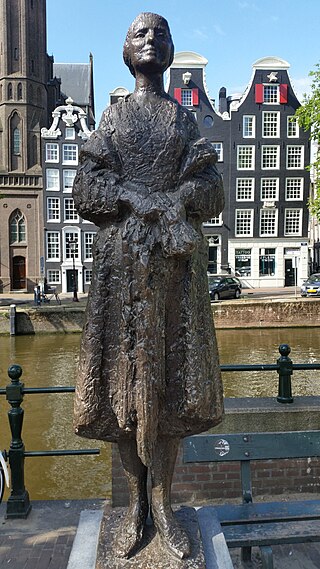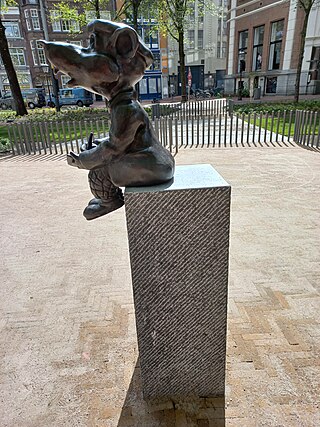Self-guided Sightseeing Tour #4 in Amsterdam, Netherlands
Legend
Guided Free Walking Tours
Book free guided walking tours in Amsterdam.
Guided Sightseeing Tours
Book guided sightseeing tours and activities in Amsterdam.
Tour Facts
9.6 km
94 m
Experience Amsterdam in Netherlands in a whole new way with our free self-guided sightseeing tour. This site not only offers you practical information and insider tips, but also a rich variety of activities and sights you shouldn't miss. Whether you love art and culture, want to explore historical sites or simply want to experience the vibrant atmosphere of a lively city - you'll find everything you need for your personal adventure here.
Activities in AmsterdamIndividual Sights in AmsterdamSight 1: Europa
Europe is an image of Hans Kuyper.
Sight 2: Het Sieraad
Het Sieraad is a multifunctional school building on the Postjesweg in Amsterdam. It is owned by the Ymere housing corporation. It is largely surrounded by the water of the Admiralengracht, the Postjeswetering and the Kostverlorenvaart and is built on a pentagonal plot. Since January 20, 2003, the building has been a national monument.
Sight 3: De droom van een hond
A dog's dream is a mosaic in Amsterdam-West.
Sight 4: Westermoskee
Westermoskee is a mosque located in Amsterdam, Netherlands. It is situated on the bank of the canalized river Schinkel in the Chassébuurt in De Baarsjes in the borough of Amsterdam-West. With a floor surface of 800 m2 and a capacity of 1700 people, it is the largest mosque in Amsterdam.
Sight 5: Ankh
Ankh is a work of art in Amsterdam-West.
Sight 6: Boegbeeld
The figurehead can refer to: The figurehead (Amsterdam), a work of art in Amsterdam-West by Leonie Mijnlieff The figurehead (Roman), a novel from 2002 by the Dutch writer Mala Kishoendajal
Sight 7: Zimmerterrein
The Zimmerterrein, also known as the Landje van Ome Kick, is a small park in the Bellamybuurt in Amsterdam-West. The park is located on the east side of the Kostverlorenvaart near the Wiegbrug. On the north side, the park borders on the Tolbrugstraat and on the south side on the Schimmelstraat. The site forms an interruption in the Tweede Kostverlorenkade. The following types of trees are in the park: elms, hawthorns and prunuses.
Sight 8: De Hallen
Get Ticket*De Hallen is a cultural center in the Kinkerbuurt in Amsterdam-West, with more than two million visitors a year. This former tram depot in the heart of Amsterdam-West houses a diversity of creative companies and talents, such as the FilmHallen, FoodHallen, De Hallen Studios, various shops with products from local makers such as The Maker Store and NOWA & Nature Bar, a hotel, a childcare centre, bicycle shop Recycle, gallery Beeldend Gesproken and one of the most busy branches of the Amsterdam Public Library with reading café Belcampo,
Sight 9: Bellamyplein
Bellamyplein is a triangular square in Amsterdam-West.
Sight 10: P.W. Janssen
The Peter Wilhelm Janssen Monument is a memorial on the Bellamyplein in Amsterdam-West.
Sight 11: waterdraagster
Water Carrier with Fish is an artistic work of art in Amsterdam-West.
Sight 12: De Ratelaar
The rattle is a bronze statue in Amsterdam Oud-West.
Sight 13: Roosje
Roosje is a mural by Dutch artist Rombout Oomen, named after the erotic poem of the same name by Jacob van Lennep.
Sight 14: Standing Stone
Standing stone is an artistic work of art in Amsterdam-West. It consists of a boulder on a marble pedestal, lying in front of Overtoom 16.
Sight 15: regular customer
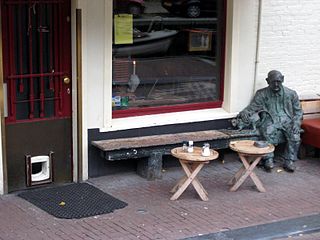
A regular customer is a bronze sculpture by the Groningen artist Albert Zweep.
Sight 16: Felix Meritis
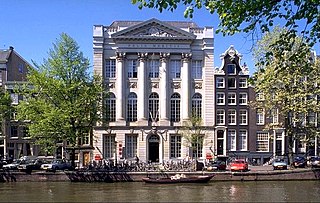
Felix Meritis is the name of an intellectual society in Amsterdam, but subsequently used for the building they built for themselves on the Keizersgracht.
Sight 17: Huis Marseille
Huis Marseille, Museum for Photography is the oldest photography museum in Amsterdam. The museum is housed in a monumental canal house at Keizersgracht 401. Since 1999, it has served as the first museum in the Netherlands fully dedicated to photography as an art form, also known as Huis Marseille.
Wikipedia: Huis Marseille, Museum for Photography (EN), Website
Sight 18: Cromhouthuis
The Cromhouthuis is a patrician house and one of the Cromhouthuizen on Herengracht in Amsterdam. Until 2020, the house housed the Biblical Museum and an annex of the Amsterdam Museum. The building was taken over by Stadsherstel that year.
Sight 19: Sint-Franciscus Xaveriuskerk
De Krijtberg Kerk is a Roman Catholic church in Amsterdam, located at the Singel. The church was designed by Alfred Tepe and was opened in 1883. The exuberant interior was made by Friedrich Wilhelm Mengelberg.
Sight 20: Singelkerk
The Singelkerk is a church of the Baptist Congregation (VDGA) in Amsterdam, located between the Singel and Herengracht. It is a so -called hiding church, a church that is not recognizable as a church on the outside.
Sight 21: Torture Museum
The Torture Museum, Amsterdam is located in Amsterdam, near the Bloemenmarkt overlooking the Singel. It exhibits historical instruments of torture.
Sight 22: Flower Market
The Bloemenmarkt is the world's only floating flower market. Founded in 1862, it is sited in Amsterdam, Netherlands, on the Singel canal between Muntplein and Koningsplein in the city's southern canal belt. It has 15 souvenir and gift shops, with only a few still selling fresh flowers. Today, the market is one of the main suppliers of flower bulbs and tulip paraphernalia to tourists visiting Amsterdam. The quality of the flower bulbs sold is questionable at best. A 2019 survey found bulbs bought at the Bloemenmarkt rarely to never flower.
Sight 23: Rasphuispoort
The Rasphuis was a "tuchthuis" or prison in Amsterdam that was established in 1596 in the former Convent of the Poor Clares on the Heiligeweg. In 1815 it was closed, and in 1892 the building was demolished to make way for a swimming pool. On the site today is the Kalvertoren shopping centre.
Sight 24: Equestrian statue of Queen Wilhelmina
The equestrian statue of Queen Wilhelmina in Amsterdam is located on Rokin street, at the corner with Langebrugsteeg alley. The statue of Queen Wilhelmina of the Netherlands was sculpted in bronze by Theresia R. van der Pant.
Sight 25: Bijzondere Collecties
The Special Collections of the University of Amsterdam are part of the University Library of Amsterdam. The Special Collections house the heritage of the University of Amsterdam, such as rare and valuable books, manuscripts, prints and drawings, photographs, archives, scientific instruments and paintings. With internationally renowned collections in the field of book history, Jewish culture, church history, cartography, literature, graphic design and zoology, it is one of the major heritage libraries in Europe.
Wikipedia: Bijzondere Collecties van de Universiteit van Amsterdam (NL), Website
Sight 26: Allard Pierson Museum
The Allard Pierson Museum is the archaeological museum of the University of Amsterdam. It is situated at the Oude Turfmarkt 127 in Amsterdam, the Netherlands. Artifacts from the ancient civilizations of ancient Egypt, the Near East, the Greek World, Etruria, and the Roman Empire are curated and exhibited in this museum.
Sight 27: Spinhuis
The Spinhuis in Amsterdam was a disciplinary house for women, on the Oudezijds Achterburgwal. It was founded in 1597 in a part of the former Sint-Ursula monastery. Spinhuizen also existed in other cities.
Sight 28: Walloon Church
The Walloon Church is a Protestant church building in Amsterdam, along the southern stretch of the Oudezijds Achterburgwal canal. The building dates to the late 15th century and has been in use as a Walloon church since 1586. The church was also known as the Franse Kerk, Walenkerk, Oude Walenkerk, or Oude Waalse Kerk.
Sight 29: Dutch East Indian Company
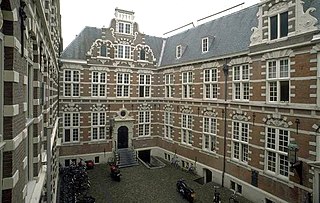
The Oost-Indisch Huis is an early 17th-century building in the centre of Amsterdam. It was the headquarters of the Amsterdam chamber of the Dutch East India Company. It is a listed Dutch national heritage site (rijksmonument).
Sight 30: Levensboom
The Tree of Life is a work of art in the centre of Amsterdam.
Sight 31: Canal Ring Area of Amsterdam
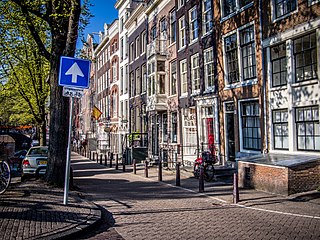
The Grachtengordel, known in English as the Canal District, is a neighborhood in Amsterdam, Netherlands located in the Centrum district. The seventeenth-century canals of Amsterdam, located in the center of Amsterdam, were added to the UNESCO World Heritage List in August 2010. The Amsterdam Canal District consists of the area around the city's four main canals: the Singel, the Herengracht, the Keizersgracht, and the Prinsengracht. From the Brouwersgracht, the canals are generally parallel with one another, leading gradually southeast into the Amstel river.
Sight 32: Tobacco Theater
The Tobacco Theater is a national monument, located on the "theaterstraat" Nes in Amsterdam.
Sight 33: Mirakelkolom
The Miracle Column is a column on the Rokin in Amsterdam in memory of the Holy City, a church building that was located on the Rokin at the time. The word 'miracle' refers to the Miracle of Amsterdam, which is said to have taken place in 1345.
Sight 34: The Amsterdam Dungeon
Get Ticket*The Amsterdam Dungeon, in the city of Amsterdam, Netherlands, follows a similar format to the London Dungeon, York Dungeon, Berlin Dungeon and Hamburg Dungeon which are owned and operated by UK-based Merlin Entertainments and attempts to show history through an interactive adventure. Live actors, a ride, shows and special effects simulate historical dark and bleak times, it was first opened in September 2005.
Sight 35: Amsterdam Museum
The Amsterdam Museum, known until 2010 as the Amsterdam Historical Museum, is an Amsterdam-based museum dedicated to the city's past and present. Due to the renovation of its main location, the museum is temporarily located in the building the Amstelhof on the Amstel River, together with H'ART Museum and the dependence of the Museum van de Geest.
Sight 36: Heilig Hartbeeld
The Sacred Heart statue is a statue in the Dutch city of Amsterdam.
Sight 37: English Reformed Church
The English Reformed Church is one of the oldest buildings in Amsterdam, situated in the centre of the city. It is home to an English-speaking congregation which is affiliated to the Church of Scotland and to the Protestant Church in the Netherlands.
Sight 38: Begijnhof
The Begijnhof is one of the oldest hofjes in Amsterdam, Netherlands. A group of historic buildings, mostly private dwellings, centre on it. As the name suggests, it was originally a béguinage. Today it is also the site of two churches, the Catholic Houten Huys and the English Reformed Church.
Sight 39: Begijnhofkapel
The Begijnhof Chapel, dedicated to Saint John and Saint Ursula, is a Roman Catholic chapel run by the Congregation of the Blessed Sacrament, in the St Nicholas Parish of Amsterdam. It is located in a former schuilkerk in the Begijnhof across from its original location, the English Reformed Church, Amsterdam. The Miracle of Amsterdam is commemorated yearly with a procession starting from this church.
Sight 40: Houten Huis
The Houten Huys is a building on the Begijnhof in Amsterdam dating from 1528 or shortly thereafter. It is one of the oldest houses in Amsterdam and, next to a building at the beginning of the Zeedijk, one of the two remaining houses with a wooden façade of Amsterdam.
Sight 41: Vrouw met stola
Woman with stole is an artistic work of art in Amsterdam-Centrum.
Sight 42: Argus
Argus is an artistic work of art in Amsterdam-Centrum.
Share
How likely are you to recommend us?
Disclaimer Please be aware of your surroundings and do not enter private property. We are not liable for any damages that occur during the tours.
GPX-Download For navigation apps and GPS devices you can download the tour as a GPX file.
